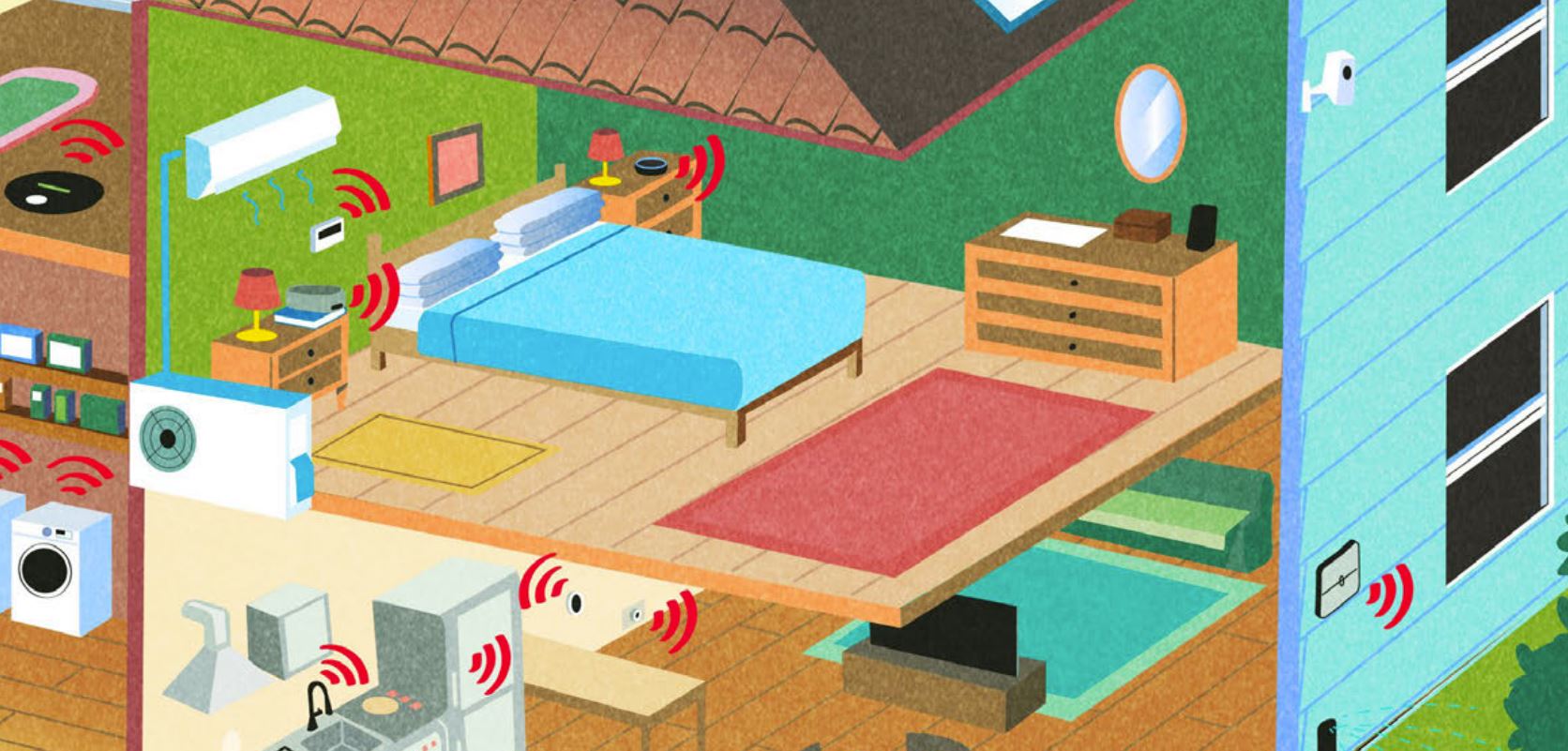Help Wanted in America: Skilled Workers
In an ever-more-competitive job market, technology increases the need for skilled workers.


Profit and prosper with the best of Kiplinger's advice on investing, taxes, retirement, personal finance and much more. Delivered daily. Enter your email in the box and click Sign Me Up.
You are now subscribed
Your newsletter sign-up was successful
Want to add more newsletters?

Delivered daily
Kiplinger Today
Profit and prosper with the best of Kiplinger's advice on investing, taxes, retirement, personal finance and much more delivered daily. Smart money moves start here.

Sent five days a week
Kiplinger A Step Ahead
Get practical help to make better financial decisions in your everyday life, from spending to savings on top deals.

Delivered daily
Kiplinger Closing Bell
Get today's biggest financial and investing headlines delivered to your inbox every day the U.S. stock market is open.

Sent twice a week
Kiplinger Adviser Intel
Financial pros across the country share best practices and fresh tactics to preserve and grow your wealth.

Delivered weekly
Kiplinger Tax Tips
Trim your federal and state tax bills with practical tax-planning and tax-cutting strategies.

Sent twice a week
Kiplinger Retirement Tips
Your twice-a-week guide to planning and enjoying a financially secure and richly rewarding retirement

Sent bimonthly.
Kiplinger Adviser Angle
Insights for advisers, wealth managers and other financial professionals.

Sent twice a week
Kiplinger Investing Weekly
Your twice-a-week roundup of promising stocks, funds, companies and industries you should consider, ones you should avoid, and why.

Sent weekly for six weeks
Kiplinger Invest for Retirement
Your step-by-step six-part series on how to invest for retirement, from devising a successful strategy to exactly which investments to choose.
There is a lot of worrying about jobs these days, especially given the slowing trend in hiring since February as amplified by the paltry 38,000 jobs added in May, and the many people who’ve given up looking for work.
Adding to the concerns and overall angst: The relentless march of automation, robots and other productivity-enhancing machines that will continue to displace people in the workplace. Folks without skills will take the biggest hit. Coming increases in the minimum wage in many states and cities are sure to advance employers’ efforts to automate low-skill jobs such as parking lot attendants, order takers, front-counter workers and the like.
But for skilled workers, the future is bright. May’s job report is noteworthy for occupations that are not affected by the slowdown in hiring, chiefly tech, accounting, consulting and health care. In fact, employers find it hard to fill many jobs in fields that require sophisticated technical skills along with an ability to communicate effectively while leading and influencing teams of colleagues, according to John Reed, executive director of Robert Half Technology, a recruiting firm. He says many companies are even taking some of their own non-technical folks who have good “soft skills” and giving them technical training.
From just $107.88 $24.99 for Kiplinger Personal Finance
Become a smarter, better informed investor. Subscribe from just $107.88 $24.99, plus get up to 4 Special Issues

Sign up for Kiplinger’s Free Newsletters
Profit and prosper with the best of expert advice on investing, taxes, retirement, personal finance and more - straight to your e-mail.
Profit and prosper with the best of expert advice - straight to your e-mail.
Successful implementation of technology requires a slew of experts in well-compensated positions, ranging from big data and cybersecurity specialists to software and mobile app developers. Also computer network administrators, systems engineers, programmers of all stripes and wireless network engineers.
Greater use of digitized video for marketing and more is opening up jobs in motion graphics and customer experience design, marketing automation and other specialties that didn’t exist a few years ago. Recent college grads and others that specialize in such fields are often seeing multiple offers from top-notch firms.
Among other tech careers that will see huge growth in the years ahead: Commercial drone pilots, smart-home-systems installers and repair workers, satellite data analysts, and coders for virtual reality systems and quantum computers.
Meanwhile, scores of health care jobs are going unfilled. In fact, Ralph Henderson, president of professional services and staffing at AMN Healthcare, notes that just about half of the roughly 1 million job openings posted each month get filled.
There is strong demand for physicians who specialize in geriatrics, dentists, medical laboratory technologists, physical and occupational therapists, and nurses of all types, especially nurse practitioners and nurses in specialty areas who are able to train others. Typically, nurses become specialized only after several years of experience at general nursing, but the need is so great that recruiters such as AMN Healthcare are providing specialized training to graduates straight out of nursing school.
Moreover, according to Henderson, less well-known are the staffing needs at the high end of the spectrum: Directors of surgery and emergency operations, chief nursing officers, and CEOs and COOs of hospitals who can navigate the complexities of the modern healthcare system.
Note, too, a growing emphasis by employers on apprenticeships and internships, offering on-the-job training and experience not only for blue-collar workers–electricians, carpenters, heating, ventilating and air conditioning specialists—but also in tech and various other fields. They give employers a chance to teach specific skill sets to talented individuals, many of whom are offered full-time jobs once their learning tenures are over.
Profit and prosper with the best of Kiplinger's advice on investing, taxes, retirement, personal finance and much more. Delivered daily. Enter your email in the box and click Sign Me Up.

David is both staff economist and reporter for The Kiplinger Letter, overseeing Kiplinger forecasts for the U.S. and world economies. Previously, he was senior principal economist in the Center for Forecasting and Modeling at IHS/GlobalInsight, and an economist in the Chief Economist's Office of the U.S. Department of Commerce. David has co-written weekly reports on economic conditions since 1992, and has forecasted GDP and its components since 1995, beating the Blue Chip Indicators forecasts two-thirds of the time. David is a Certified Business Economist as recognized by the National Association for Business Economics. He has two master's degrees and is ABD in economics from the University of North Carolina at Chapel Hill.
-
 Quiz: Do You Know How to Avoid the "Medigap Trap?"
Quiz: Do You Know How to Avoid the "Medigap Trap?"Quiz Test your basic knowledge of the "Medigap Trap" in our quick quiz.
-
 5 Top Tax-Efficient Mutual Funds for Smarter Investing
5 Top Tax-Efficient Mutual Funds for Smarter InvestingMutual funds are many things, but "tax-friendly" usually isn't one of them. These are the exceptions.
-
 AI Sparks Existential Crisis for Software Stocks
AI Sparks Existential Crisis for Software StocksThe Kiplinger Letter Fears that SaaS subscription software could be rendered obsolete by artificial intelligence make investors jittery.
-
 When Tech is Too Much
When Tech is Too MuchOur Kiplinger Retirement Report editor, David Crook, sounds off on the everyday annoyances of technology.
-
 I Let AI Read Privacy Policies for Me. Here's What I Learned
I Let AI Read Privacy Policies for Me. Here's What I LearnedA reporter uses AI to review privacy policies, in an effort to better protect herself from fraud and scams.
-
 What Is AI? Artificial Intelligence 101
What Is AI? Artificial Intelligence 101Artificial intelligence has sparked huge excitement among investors and businesses, but what exactly does the term mean?
-
 Text-Generating AI Faces Major Legal Risks: Kiplinger Economic Forecasts
Text-Generating AI Faces Major Legal Risks: Kiplinger Economic ForecastsEconomic Forecasts Major legal risks to text-generating artificial intelligence: Kiplinger Economic Forecasts
-
 The 27 Best Smart Home Devices
The 27 Best Smart Home Devicesgadgets Innovations ranging from voice-activated faucets to robotic lawn mowers can easily boost your home’s IQ—and create more free time for you.
-
 How to Choose the Right Payment App
How to Choose the Right Payment Appbanking Using PayPal, Venmo, Zelle and other apps is convenient, but there are pros and cons to each.
-
 Shop for a New Wireless Plan and Save Big
Shop for a New Wireless Plan and Save BigSmart Buying Competition is fierce, and carriers are dangling free phones and streaming subscriptions.
-
 Watch Out for Job Listing Fraud
Watch Out for Job Listing FraudScams If one of your New Year’s resolutions is to find new employment in 2022, be on guard against job-listing scams.